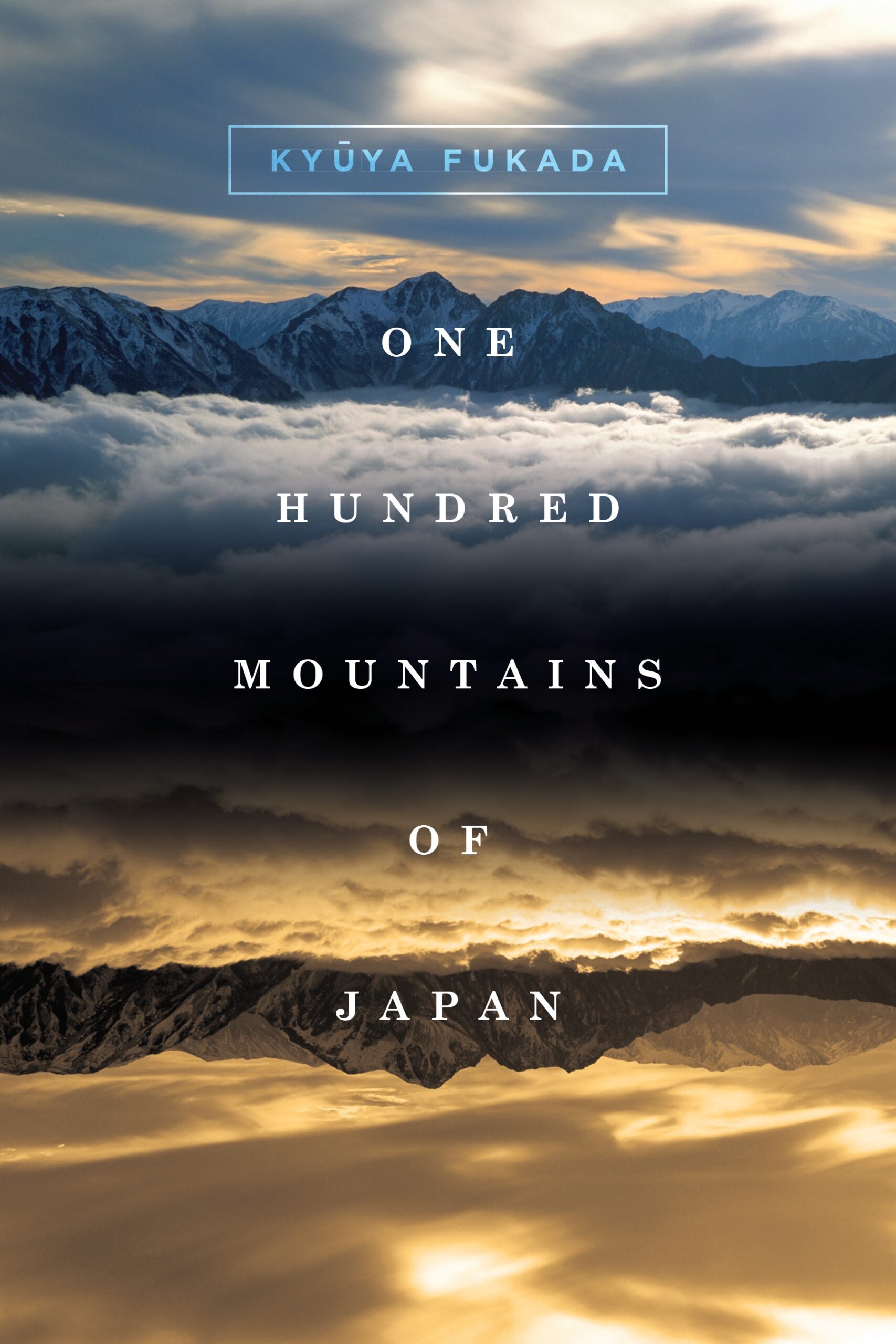One Hundred Mountains of Japan
- About the Book
-
“The more deeply you go into a long-held tradition, the more secrets and surprises it yields up. Mighty Ontake is like that. The mountain’s inexhaustible treasury of riches is like some endless storybook with its pages uncut. As one follows the rambling plot along, one is always looking forward to reading more. Every page yields things never found in other books. Ontake is that kind of mountain.”
One Hundred Mountains is that kind of book. “Nowhere in the world do people hold mountains in so much regard as in Japan,” observed the author, Kyūya Fukada, in the afterword to his most famous work. “Mountains have played a part in Japanese history since the country’s beginnings, and they manifest themselves in every form of art. For mountains have always formed the bedrock of the Japanese soul.”
In One Hundred Mountains, Fukada pays tribute to his favorite summits. Published in 1964, the book became an instant classic. Consisting of one hundred short essays, each celebrating one notable mountain and its place in Japan’s traditions, the book is an elegantly written eulogy to the landscape, literature, and history that define a people. More recently, Japan’s national broadcasting company has turned it into a memorable TV series.
Fukada himself was bemused by his book’s success: “In the end, the one hundred mountains represent my personal choice and I make no claims for them beyond that.” Yet, half a century after he set down those words, his mountains have become a cultural institution. Marked on every hiking map and enshrined in scores of spin-off books, his One Hundred Mountains are today firmly embedded in the mountain traditions they grew out of.
Now available in English for the first time, One Hundred Mountains of Japan will serve as a vade mecum to the Japanese mountains for a new cohort of hikers and mountaineers. It will also open up novel territories for students of Japan’s literature, folklore, religions, and mountaineering history—in short, for mountain-lovers everywhere.
- About the Author(s)
-
Kyūya Fukada, Author
Martin Hood, Translator
While living and working in Japan during the 1990s, Martin Hood visited about a third of the country’s One Hundred Mountains. By chance, the first high mountain he climbed was Hakusan, the peak that presides over the birthplace of Fukada Kyūya, the author of Nihon Hyakumeizan. Now based in Switzerland, he works for an international organization and is a member of the Academic Alpine Club of Zurich.Peter Skov, Photographer
- Reviews and Endorsements
-
- Hood [provides] a comprehensive glossary for every single historical figure mentioned in the text. That, accompanied by a 40-page introduction, make the book accessible to anyone with even a cursory knowledge of Japanese history and culture. The introduction itself is a stand-alone work, in what must surely be the first comprehensive English-language anthology on modern mountaineering in Japan. . . . Indeed, this introduction gives context to the book, providing a much-needed rooting of the text in the history of modern Japan. The book is required reading for anyone with even a passing interest in Japan's mountains, for Hood's translation shows not only how the mountains received their names, but also hints at the destruction of nature then getting underway.
—Kyoto Journal - The introduction is pleasant to read, and there is good eye for detail in the narrative... This book is, all in all, a very good way of introducing a global audeince to the unique work of literature... The cover design for the paperback edition is fresh and original." - Ohmori Hisao, Japanese Alpine Club (2015)"This book is required reading for anyone with even a passing interest in Japan's mountains, for Hood's translation shows not only how the mountains recevied their names, but also hints at the destruction of nature then getting underway.
—Wes Lang, Kyoto Journal - The introduction is pleasant to read, and there is a good eye for detail in the narrative . . . I would like to see this introduction and the glossary of people mentioned in the text translated for Japanese editions. For this book is, all in all, a very good way of introducing a global audience to the unique work of literature, born in the mountains of Japan, that is Nihon Hyakumeizan—as well as to the mountain culture, history and traditions that the book embodies.
—Ohmori Hisao, Japanese Alpine Club
- Hood [provides] a comprehensive glossary for every single historical figure mentioned in the text. That, accompanied by a 40-page introduction, make the book accessible to anyone with even a cursory knowledge of Japanese history and culture. The introduction itself is a stand-alone work, in what must surely be the first comprehensive English-language anthology on modern mountaineering in Japan. . . . Indeed, this introduction gives context to the book, providing a much-needed rooting of the text in the history of modern Japan. The book is required reading for anyone with even a passing interest in Japan's mountains, for Hood's translation shows not only how the mountains received their names, but also hints at the destruction of nature then getting underway.
- Supporting Resources
-





